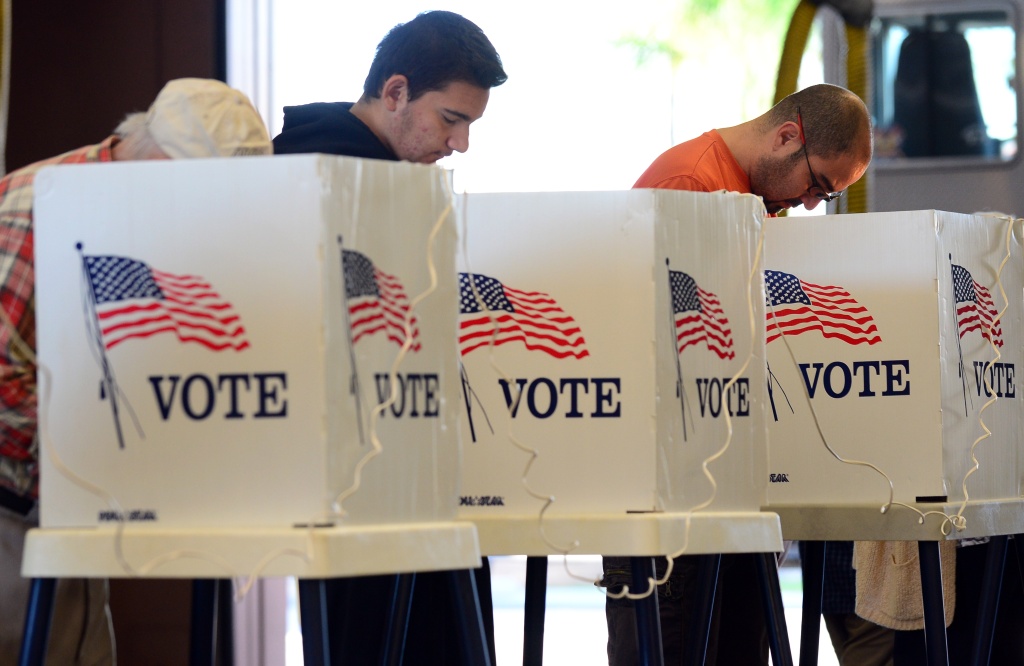
Miami, United States | AFP |
It’s the final week of the US presidential race and most of the desks are empty at the Donald Trump campaign office in Miami.
Star-spangled Mylar balloons pucker in mid-air over rows of unmanned phones. Just a few people huddle at a table in the back corner, quietly practicing what to say before calling a potential voter.
“Traditionally, it’s go-time right now,” said the sole Republican campaign staffer in the office, asking that his name not be published.
When it comes to knocking on doors, calling people, mobilizing supporters and urging them to vote, by conventional measures Trump’s campaign is lagging behind Hillary Clinton’s in what politicos refer to as the “ground game.”
Polls show a thin margin between the two candidates, and that’s crucial in battleground states like Florida, where George W. Bush bested Al Gore in 2000 by just over 500 votes.
“Having that ground game in place is very, very critical to success in a tight-race state like what we are seeing in Florida,” according to political consultant Brian Burgess.
“Turning out voters — and the right voters — could make up the difference of a point or two either way.”
– Late start –
The Republican side opened most of its 25 pop-up Florida offices — mainly run by the Republican National Committee, not the Trump campaign — less than two months ago.
In contrast, Clinton’s side is seen as better established, with more than twice the voter outreach offices statewide, including more than a dozen offices in Miami-Dade County alone.
At one such Clinton campaign walk-in office at a strip mall in the well-heeled suburb of Pinecrest, about a dozen people were busy working the phones this week, while a greeter sat at the door, selling buttons, shirts and offering a photo opportunity with a life-sized cardboard cut-out of Hillary Clinton.
“What is important is talking to as many voters as possible,” said Juan Cuba, executive director of the Miami-Dade Democratic Party.
“So we are doing a huge door-to-door campaign, and making a lot of phone calls.”
A key part of the effort in Florida is convincing people to vote early, in the two weeks leading up to Election Day, to avoid long lines on November 8.
“Mobilization does matter,” said Stephen Craig, professor and director of the political campaigning program at the University of Florida.
“People are more likely to vote when they’ve been contacted by a candidate or party during the campaign, and that can make the difference in a close race.”
Who are the supporters?
But just who are Trump’s voters? Identifying them can be a challenge, particularly for a candidate who has divided evangelical Christians, insulted Hispanics, questioned Republican stalwart John McCain’s war hero status, and boasted of groping women without their consent.
“The Republicans might not have a great handle on who Trump’s real voters are, only because they are not the same exact slice that they are used to dealing with,” said Burgess.
Indeed, the trio of Trump supporters holding signs outside one Miami library polling place this week did not necessarily fit the typical Republican mold.
One was a gray-haired man wearing a shirt emblazoned with the words, “Another Democrat for Trump 2016.”
One was a middle-aged woman wearing pink lipstick, a “Make America Great Again” baseball cap, a red tutu and a “Women For Trump” sign.
She took smart phone pictures of drivers who paused to pose with a Trump sign, and said “word-of-mouth and social media” were the main thrust of the get-out-the-vote efforts.
The third was 60-year-old Katrina Vidal, who said she spent about 10 hours over the course of two days stumping for Trump in a parking lot.
Wearing sunglasses and a baseball cap on a cloudy afternoon, she held a “Trump-Pence” sign and said she gave up on making phone calls because of her limited Spanish, which is widely spoken in Miami.
“The Hillary supporters have been the nasties,” she said, recalling one woman who shouted the F-word at her as she made her way to the voting place.
But overall, Vidal described the experience of campaigning for Trump as “very positive.”
“Voting is the most important thing you can do as an American,” she said.
 The Independent Uganda: You get the Truth we Pay the Price
The Independent Uganda: You get the Truth we Pay the Price





